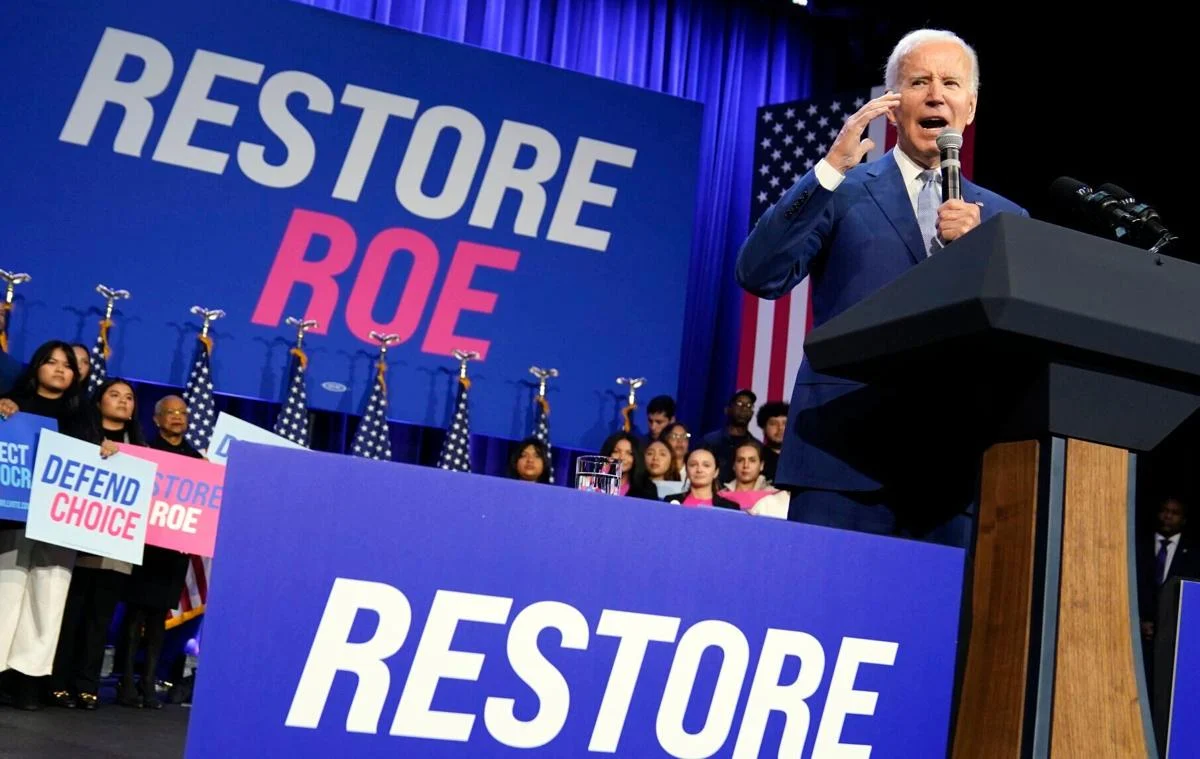Angela Crawford, a once-conservative Republican, has shifted her political allegiance due to her concerns about reproductive rights. After experiencing firsthand the impact of restrictive laws on abortion and in vitro fertilization (IVF) in Missouri, Crawford is now actively campaigning for a ballot initiative to safeguard access to reproductive health care. Her journey reflects a broader trend where individuals like her are reevaluating their political affiliations in response to the erosion of reproductive rights in states across the nation.
The issue of reproductive health has gained prominence in the political landscape, particularly for President Biden’s reelection bid. With rights diminishing in states like Indiana, Florida, and soon Arizona, Biden faces the challenge of rallying support amid staunch opposition from Republican circles. Personal stories of women suffering due to restrictive laws, such as a Texas woman’s near-death experience from being unable to access abortion, underscore the urgency of the issue.
Restrictive laws don’t just affect individuals; they pose challenges for healthcare professionals as well. Doctors now encounter unprecedented hurdles in delivering care, often finding themselves in complex situations. For instance, they may need to guide patients to neighboring states for abortion services due to local restrictions. This uncertainty has galvanized young people like Amaia Clayton to become more politically active, as they recognize the immediate impact of reproductive healthcare on their lives.

The growing discontent over restrictions on abortion rights has been reflected in voter sentiments, with strong disapproval evident in recent elections. Democrats have capitalized on this sentiment, with support for abortion access driving women to the polls and delivering unexpected successes in the 2022 midterm elections. Polling data indicates a majority of Americans support the legality of abortion, further emphasizing the disconnect between public opinion and legislative actions in some states.
The aftermath of Roe v. Wade’s fall has seen a proliferation of strict abortion bans and efforts to tighten regulations in various states. Alabama’s recent ruling on frozen embryos as children and its stringent abortion ban exemplify this trend. These developments have prompted shifts in political dynamics, as seen in Democrat Marilyn Lands’ successful campaign focusing on reproductive rights in Alabama.
Despite the predictable ripple effects of restrictive laws, there remains a gap in public perception, with some Americans disbelieving the extent of the threat to reproductive rights. Advocates emphasize the importance of framing the issue within the broader context of reproductive freedom, resonating with a wider audience beyond traditional pro-choice rhetoric. President Biden and Vice President Harris are actively addressing the issue, contrasting their stance with that of the Trump administration.
In response to the mounting pressure, Republicans are grappling with how to navigate the issue of abortion and reproductive health, particularly concerning states’ rights. The recent refusal by Missouri Republican legislators to codify language supporting Medicaid coverage for contraceptives or IVF-related services underscores the political divide. Democrats leverage such actions to highlight their support for reproductive rights, further intensifying the political debate surrounding the issue.


